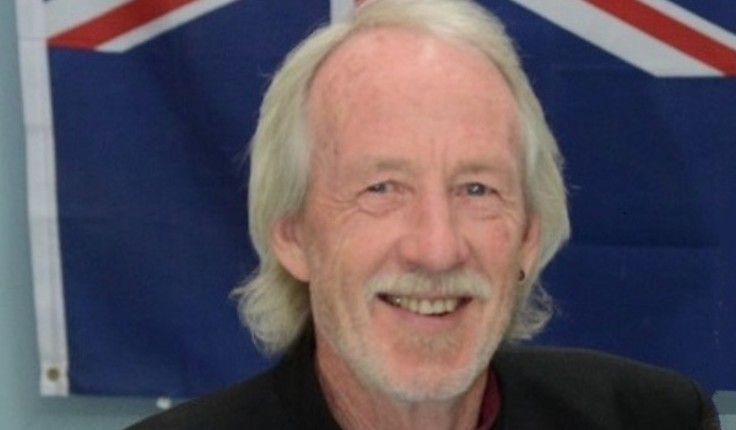News
NZILA / IFLA Delegate Update
Posted 25 09 2017 by Mike Barthelmeh
in News

There are three key current issues that I thought would be of interest to landscape architects in New Zealand
Every time I think I have finished this first column, something new arrives in my mailbox from IFLA World, or the Asia Pacific Region! It continues to be a busy time since I was appointed earlier this year as the NZILA delegate to the IFLA World Council. The position gives New Zealand a voice on the World and Regional Councils, ensuring that our perspective is heard when those bodies are setting policy directions or approving action plans, and providing a first-hand opportunity to keep NZILA members informed of initiatives and progress made at an international or regional level in regard to the profession of landscape architecture.
There are three key current issues that I thought would be of interest to landscape architects in New Zealand:
- International - the relationship between the five regions of IFLA and IFLA central, in regard to levels of autonomy and control of finances;
- Regional - a continuing call for reciprocity of qualification in the region, and hence the need to develop a regional policy on education and accreditation; and
- National - a question that I have heard a lot since I was appointed as the NZILA delegate to IFLA: 'What is IFLA doing for us?'
International
I'll be attending the World Council meeting in Montreal next month as the official NZILA delegate, my first since 1992 when I represented NZ at the meeting in South Korea. The meeting will have the relationship between central and regions as one of the main topics of discussion; it will be interesting, with some strongly held views. The organisation is revitalised after the congress in Turin last year, with a focus on demonstrating that IFLA is providing value for money in the international arena with a plan for more tangible achievements, so I am looking forward to a positive debate.
At an international level, there are currently differing levels of autonomy for each of IFLA's five regions (Africa, Americas, Asia-Pacific, Europe, Middle East), with IFLA central wishing to assert a stronger and more regionally consistent leadership role with limited delegation. The current IFLA president, Kathryn Moore, strongly believes that IFLA's standing in the international community will be enhanced with a stronger central role, while other leaders, particularly in Europe and in our region, believe that stronger autonomy for the regions will result in greater and more relevant value for members.
Regional
Elections are currently underway for the position of IFLA APR president for the 2018-2019 period, with a race between the current president, Damian Tang from Singapore and Sung-Kyun Kim from Korea. There was also an election for the position of Hon. Secretary, but since I was the only one standing, I was elected unopposed!
The most significant piece of work undertaken in the region over the last few months has been the development of a set of draft standards for education and accreditation. The education document is currently under review by the IFLA Education and Academic Affairs committee; once ratified, the education document will allow programmes within the 14 nations of our region to apply for accreditation by IFLA APR. Graduates from successful programmes will have met the same standards for membership of a national professional landscape architecture organisation as those graduating from one of New Zealand's three providers of accredited programmes, enabling reciprocity across the region.
IFLA APR has also begun the development of a draft constitution, which will shortly be considered by the IFLA Executive committee. The constitution is a key step for the region to gain more autonomy from IFLA World, particularly in regard to finances and potentially allowing fees to be paid to the region with a portion sent on to IFLA rather than the other way around as it is at present.
Another recent initiative of the Asia Pacific Region has been the development of a tripartite awards programme for the three smallest regions of IFLA: Asia-Pacific, Africa and the Middle East, which will be launched as part of the lead-up to the World Congress and Council meeting in Singapore in July next year. This initiative is a clear indication of the levels of energy and commitment that we have in the IFLA APR, to undertake something tangible for the profession in these newest member regions of IFLA.
National
The outcomes from the Montreal meeting will at least partially help answer the question about what benefits we get from being a member of IFLA, but in the meantime, here is a list I put together of some of the benefits we get from belonging to the International Federation of Landscape Architects:
- NZILA has delegated authority to accredit landscape programmes to an international standard, and thus allow our graduates to be globally competitive
- NZILA has a voice at the World and APR Council meetings
- We have high level access to and recognition from international bodies such as UNESCO, FAO, and ICOMOS, in regard to landscape architecture concerns
- We get IFLA news - regular updates about member activities and promotion of the profession globally, with a chance to promote significant NZILA initiatives internationally
- We have access to colleagues internationally for work or education opportunities
- We get invitations to international design competitions for practitioners and students
- Our voice has more opportunity to be heard through an enhanced international profile for the profession
- We are part of an organisation working on global challenges such as water access, water quality and coastal challenges through increased storm events, sea-level rise and salinity encroachment to fresh water systems
- It enables our contribution to support the emerging profession in 'developing' countries
I'm sure there are more, but those at least provide an indication to support our continued membership of IFLA.
I'll write again after the World Council meeting in Montreal, letting you know the outcomes of discussion that is particularly relevant to New Zealand, and to our region.
Mike B.
IFLA delegate
September 2017
16 Feb
Weekly international landscape, climate and urban design update

Monday 16 February
This is your weekly international snapshot of what’s happening across landscape architecture, climate adaptation and urban design. Drawing on credible …
12 Feb
NZILA lodges submission on Planning Bill and Natural Environment Bill

There’s still time to have your say
Tuia Pito Ora New Zealand Institute of Landscape Architects has lodged its formal submission on the Planning Bill and Natural …
09 Feb
Weekly international landscape, climate and urban design update

Monday 9 February
This is your weekly international snapshot of what’s happening across landscape architecture, climate adaptation and urban design. Drawing on credible …
Events calendar
Full 2026 calendar